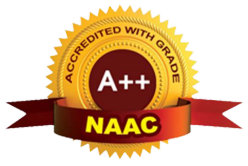Objective
In the wake of major investments in education by governments all over the globe and the growth of enormous corporate involvement in the field, the aim is to bring to India a big holistic event on education. The education market in India is growing at an exponential rate in all segments (school, higher and skills development). It is an opportune time not only to provide a platform for education policy dialoguing at a global level in India, but also to tap the huge education market in the country.
WES 2011 aspires to be a major global platform, hinged on the participatory model, bringing together policymakers across nations for dialogues, debates and deliberations upon policies, tools and methods of learning towards Education for All. The Summit will gather together ministers and secretaries of education, stakeholders from civil society organisations, corporate houses, and decision-makers from the education industry. It will aim at enriching global efforts at inclusive education and at analysing the role of governments in the development and implementation of education policies.
The Summit will draw attention to best practices, share learning and knowledge, and promote innovations in the field of education. It will assess learning in the 21st century and debate trends in school, higher and skill education across the globe. There will also be an emphasis on deliberating upon best cases and methods for creating opportunities for students with disabilities. The role of teachers in meeting learners’ diverse expectations and needs is another area that is expected to be intensely addressed.
WES 2011 will cover education in a holistic and nuanced manner and will be held at The Ashok, New Delhi, India on 13 - 15 July 2011. There will be three parallel tracks on School Education, Higher Education, and Skill Development and Vocational Education. The event will be marked by conferences, exhibitions, workshops and an award ceremony. It will provide a wonderful opportunity to stakeholders in the field of eduaction, all over the world, to create opportunities of progress at all levels - international, national, regional and local.
PERCEIVED OUTCOME
- Enrich debates on inclusive education
- Analyse the role of governments, world-wide, in the development and implementation of education policies
- Draw attention to best practices, methods and tools for learning
- Enrich opportunities and learning methods for students with disabilities
- Emphasise the role of teachers in meeting the diverse expectations and needs of learners
- Analyse industry market trends in education across the globe
- Building networks and collaborations among stakeholders



